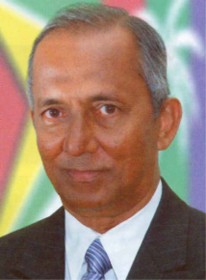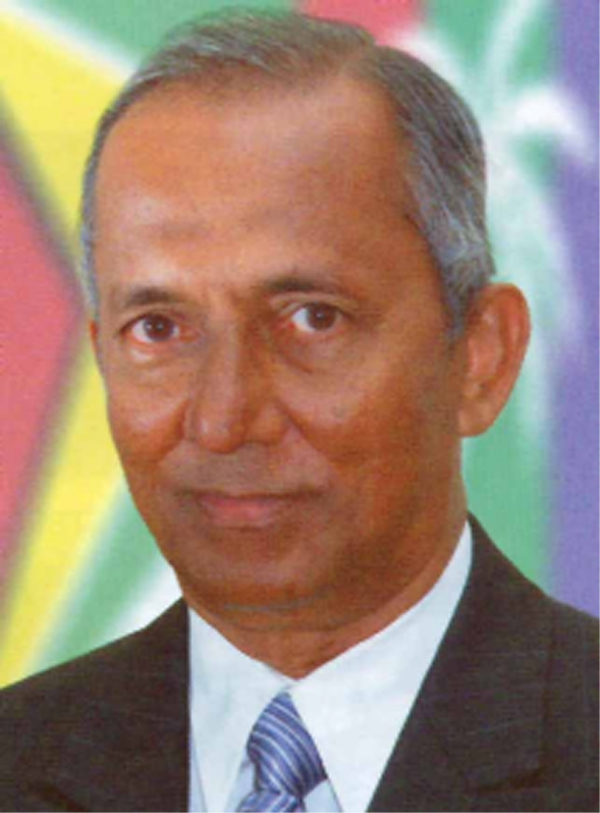Three contracts totalling US$4.2M ($850M) awarded to the New Guyana Pharmaceutical Company Inc (New GPC) for the supply of drugs for the health ministry have been flagged as the latest awards to the supplier which evade the tendering process.

Cabinet gave its “no objection” for the award of the contracts between last December and May this year, but according to PNCR-1G MP Winston Murray it is arrogating to itself authority it does not have by waiving the tender process, while the supplies were sourced from the New GPC without formal invitations to tender from any other suppliers in violation of the Procurement Act. “These were not subject to a formal tendering process,” Murray told Stabroek News yesterday, adding, “What compounded the illegality is Cabinet’s intervention.”
According to letters from the National Procurement and Tender Administration Board (NPTAB) Chairman Donald De Clou, which were presented to the Public Accounts Committee (PAC) on Monday, the contracts were for the purchase of drugs and medical supplies for the Ministry of Health (MOH), including its Tuberculosis Programme. They were for the amounts of US$1,513,818.68, US$2,681,293 and $76,781.08, totalling US$4,271,792.76 ($854,358,552). The first contract was a “single sourced” procurement from the New GPC, while the other contracts were “shopping” procurements, in which two bids were submitted for each.
The issue was raised at a PAC meeting on Monday, where the MOH Permanent Secretary Hydar Ally and other ministry officials appeared in front of the committee. Asked by the committee whether the tender process for the awards to New GPC had been an open one, Ally said that the MOH has set out to regularise its tendering process, noting that there is a $15M ceiling limit at which it approaches Cabinet for approval from the NPTAB. He said the ministry had awarding letters from the NPTAB, noting that the awarding of the contract to New GPC was based on selective tendering, with cost being a factor in the process.
Further, Ally told the PAC that the ministry has benefitted from the arrangement with New GPC. He explained that that MOH does not have to bear the cost of storage or transportation, supplies are delivered on a needs basis, payment is made in local currency and that there is easy access to supplies in cases of emergencies, such as flooding.
However, saying that there is no reason why the New GPC should receive special treatment, Murray said tender requirements could include the requirements that bidding companies meet the demands for supplies on a needs basis or for the construction of a bond for storage. He also outright dismissed Ally’s suggestion that payment in local currency is any advantage since the New GPC ultimately pays its overseas suppliers in US dollars.
Murray, shadow finance minister, explained that contract awards were deceptive because the New GPC was the only company selected to tender. “[The contracts] appear to satisfy the process but no formal invitation to tender from any source other than the GPC was ever engaged in,” he declared in an interview with this newspaper.
While the Procurement Act provides for “restricted tendering” and “single sourced” procurements, he noted that the contract awards failed to satisfy the criteria set out in the legislation. Although public tendering is mandatory, Under Section 26 (1) of the Procurement Act, “restricted tendering” is allowed when by reason of their highly complex or specialised nature, goods or services are available only from a limited number of suppliers or contractors, in which case all such suppliers or contractors are to be invited to submit tenders, or if the estimated cost of the contract is below the threshold set out in the regulations. Where there is a “request for quotations” for procurement, the contract is not to exceed the sum prescribed by regulations. The threshold for “restricted tendering” as set out in the regulations is $1,000,000 in the case of contracts for good and services, while where there are “requests for quotations” the threshold is $800,000.
However, when the “restricted tendering” procedure is used, the Act says, only suppliers or contractors invited by the procuring entity due to their qualifications can submit tenders. Murray pointed out that this has not been the case, noting that Ally told the PAC that the MOH only contacts other suppliers like PAHO or the IDA to check their prices. He also cast doubt on there being need to restrict tendering on the basis of a “limited number” of suppliers or contractors. “I don’t accept that to be the case for drugs at all, because there are a number if suppliers,” he said, while adding that the contracts also exceed the threshold for selective tendering.
Last year, the Auditor General’s 2006 report showed preferential treatment given to the New GPC, while highlighting discrepancies such as 12 contracts entered into with the Georgetown Public Hospital (GPHC) that showed no evidence of tender board procedures being adhered to.
For 2006, the report pointed out that amounts totalling $608M were spent by GPHC on drugs and medical supplies but that it could not completely account for these purchases since there was no central point of accountability. The response of the GPHC, according to the report, was that the corporation had no control over the Materials Management Unit staff since they came directly under the Ministry of Health. The audit office report then pointed out that contracts worth $430M were entered into with NGPC but added that there was “no evidence to indicate that tender board procedures were adhered to.” Questions had been raised about this in the light of the deal between the government and NGPC’s parent company, QA11, for the divestment of the Sanata Textiles site and also the controversial concessions that were announced for the group and which were not catered for by law.
Murray was critical of Cabinet’s role in the drug procurement process, saying that it arrogated to itself the authority to waive the tender process. “Cabinet cannot do that, it cannot!” he emphasised, noting that it is an Evaluation Committee set up under the law that is to determine which tenderer has submitted the lowest bid and to make a recommendation to the procuring entity. (The law also allows for the procuring entity, if it disagrees with the recommendation, to issue an advisory recommendation to the Evaluation Committee, regarding which bidder should be the lowest evaluated bidder, which the Committee is then bound to observe.) “All [Cabinet] can do is say it has ‘no objection’ to that particular bidder but it cannot direct a waiver, which is what they did,” Murray said.
In this regard, Murray also noted the reluctance by the government to establish the Public Procurement Commission, which has a constitutional mandate to monitor the performance of procurement bodies for adherence to regulations and efficiency in procuring good and services and the execution of works. It specifically has oversight over the procedures of ministerial, regional and national procurement entities as well as those of project execution units.
Among the most vocal advocates for the setting up of the Commission, Murray has accused the government of deliberately dragging its feet because it is comfortable with the Finance Ministry being solely in control of the tender process. “There are very selfish reasons,” he said, noting that Cabinet’s role in the process would effectively end with the establishment of the Commission. “So long as they don’t establish the Public Procurement Commission, Cabinet’s role in public procurement remains intact,” he reasoned.
A study by the Ethnic Relations Commission (ERC) suggested that the Procurement Commission be established so that certain functions that it has to perform can be removed from the ambit of the NPTAB which was set up after the passage of the Procurement Act 2003. That study had noted that the mode of creation and manner of oversight of the NPTAB is qualitatively different from those constitutionally provided for the Public Procurement Commission. Also, critics have charged that the NPTAB undermines the intended work of the commission by usurping some of its functions.
Meanwhile, last year, a World Bank official stressed the need for the commission to be put in place so that aggrieved participants in the procurement process could seek redress. Alejandro Cedeno, Communications Officer for Latin America and the Caribbean also said that the World Bank reminded the government here of the need to have such a body in place.

